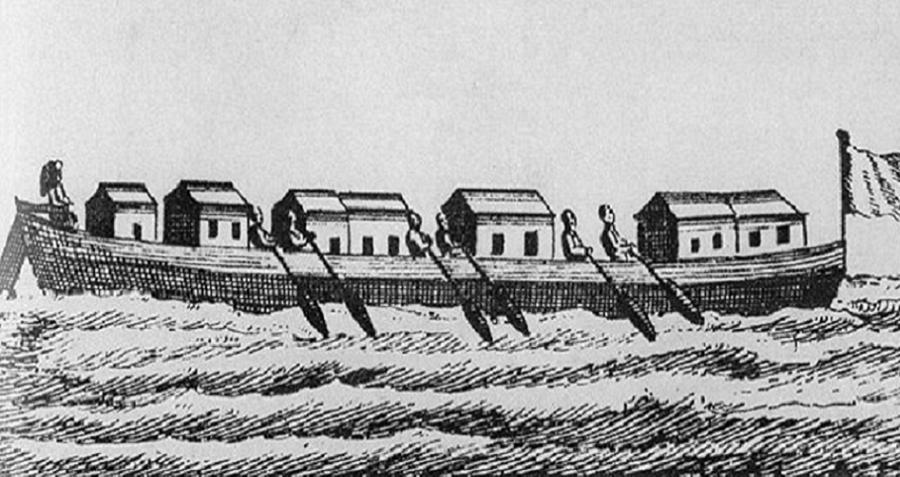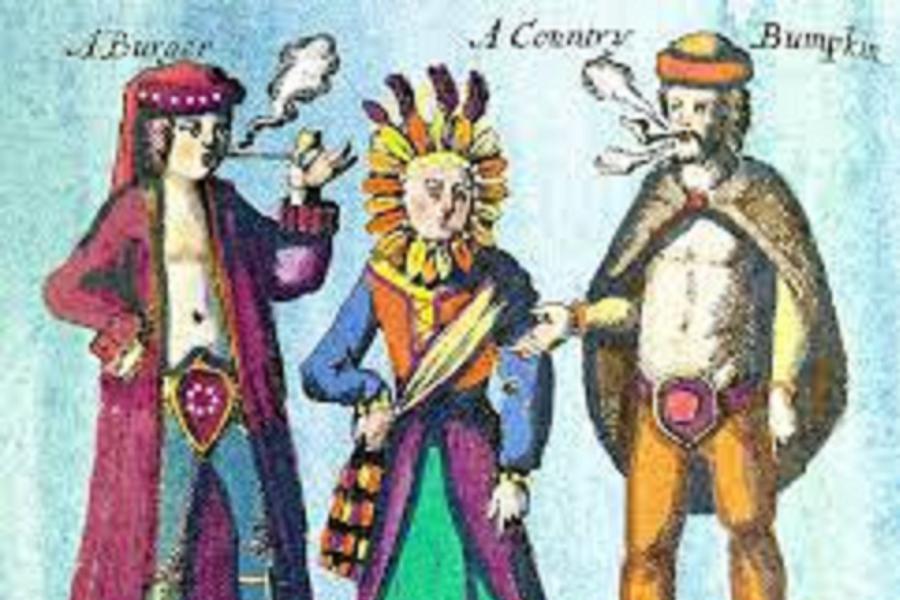The Pinnacle of Success For George Psalmanazar

Wikimedia CommonsA Formosan floating village. Psalmanazar claimed that this was a common way of life in Formosa, and that whole villages could be rowed across the sea.
All this ego-stroking opened doors for George Psalmanazar. In 1704, he found a publisher for his first book, An Historical and Geographical Description of Formosa, an Island Subject to the Emperor of Japan, which was a pack of lies from beginning to end.
According to the book, Formosa’s great capital city, Xternetsa, comprised underground igloos made from adobe. Its people went about almost totally naked except for gold or silver plates over their genitals. Men could take multiple wives, the book recounted, but husbands punished unfaithful wives by boiling them in cauldrons and eating them.
Aside from the cannibalism, the principal diet of Formosa was tree snakes that the people hunted with arrows, which they also shot at condemned prisoners they hung upside down as a method of execution. The book even offered a section on the Formosan language that was soon taught to Bible students in training for missionary work in the Far East.
Psalmanazar’s preposterous book was a huge hit, and before long he was offered a professorship at Oxford. As part of his work, he undertook “translations” of various religious books into Formosan and taught the language to students. He also toured the country and earned generous speaker’s fees for lecturing on the strange customs of his people to a British public that seemingly couldn’t get enough of his stories.
Revelations and Redemption

Wikimedia Commons
All good things must end, and George Psalmanazar was never quite able to win over all of the doubters. By 1706, editorials outing him as a fraud started appearing in major newspapers in Britain, and it was time to end the charade.
Characteristically, rather than just admit he was a fake and fade into the background, Psalmanazar experienced a religious epiphany and confessed everything in the most elaborate and flowery language he could in a public statement.
Rather than destroying his credibility – remember that by this point he had been teaching a made-up language to college students for more than two years – the confession stroked yet another nerve in the British public’s heart, that of redemption.
Psalmanazar was again the toast of London, this time as a glorious impostor who fooled everyone but eventually saw the light and was truly sorry for what he had done. His autobiographical book, Memoirs of ****, Commonly Known by the Name of George Psalmanazar, was another best-seller, though it was only published after his death.
Though Psalmanazar may have faked his religious convictions, he genuinely seems to have settled down after making a clean breast of things.
Shortly after the exposure, he got a job editing a broadsheet for a Grub Street publisher. Years later, when his employer brought out a book called Geography of the World, a serious academic work summarizing the then-known world, Psalmanazar actually contributed to the section on Formosa, though his work was carefully vetted and found to be largely accurate.
The man with no known name, popularly known as George Psalmanazar, died peacefully in 1765 at the age of 85, and was mourned by half of London society as a dear friend.
Next, discover seven of the most famous hoaxes to ever fool the world. Then, read more on one of the most notorious hoaxes of them all: the strange case of the Piltdown Man.





